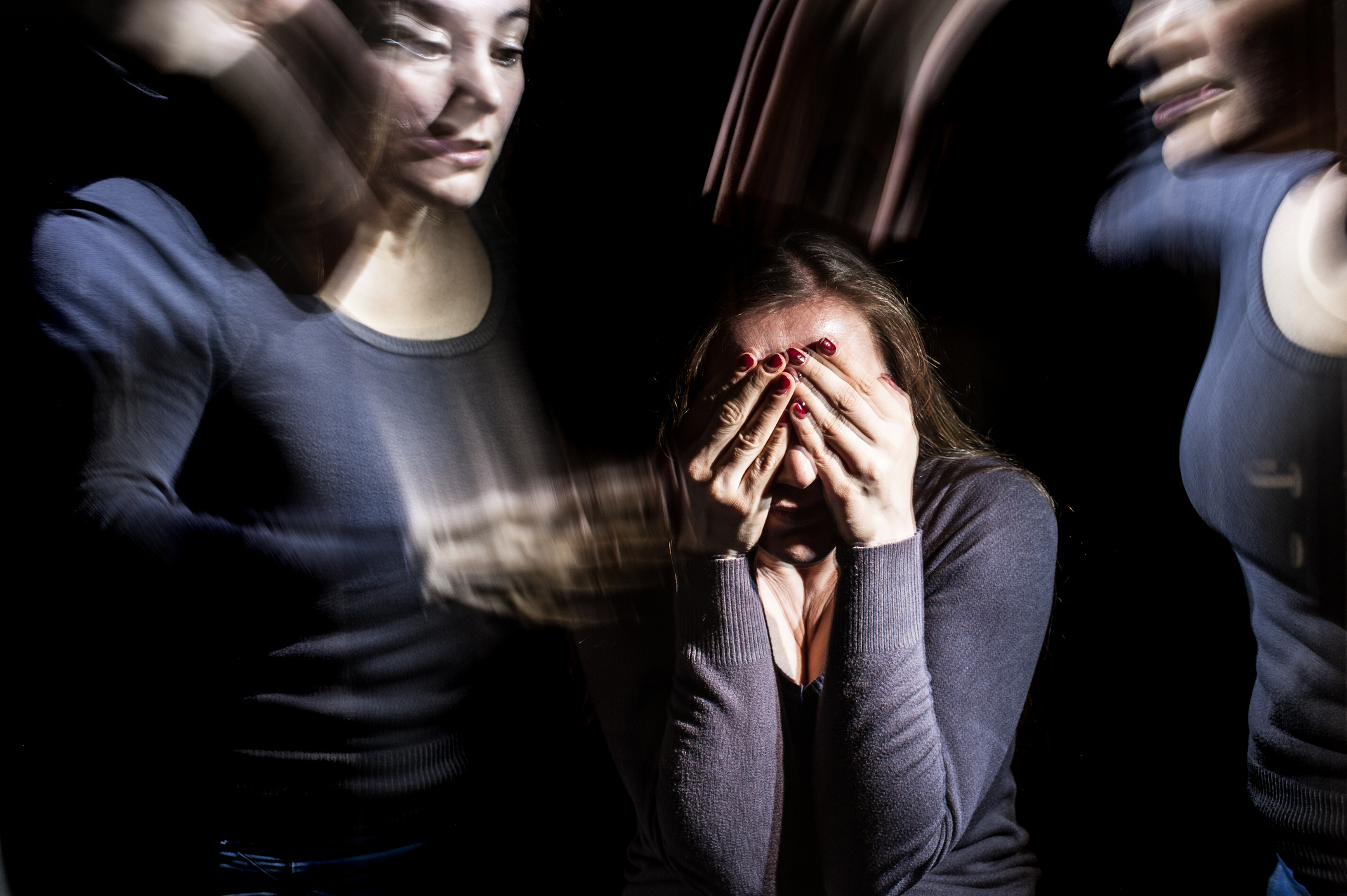What Is Bipolar Disorder? Symptoms, Treatment & Financing Options
Living with mental health conditions can present unique challenges, and when it comes to bipolar disorder – an illness that causes extreme shifts in moods and energy levels –, understanding how to manage its symptoms is crucial. Those grappling with this condition require support both from their own network of friends and family, as well as access to quality care that will help them achieve sustainable mental well-being.
We'll provide an overview of what bipolar disorder is, the signs and symptoms involved, available treatment options for managing the illness, plus financing information such as insurance for those seeking coverage in Singapore.
How Common Is Bipolar Disorder in Singapore?
Bipolar disorder is a complex mental health condition that affects millions of people worldwide. In Singapore, statistics show that approximately 1% of its population – roughly 59,000 individuals – are believed to be living with bipolar disorder.
While the symptoms of this condition can be managed through a combination of medication, therapy, and lifestyle changes, many individuals with the disorder still face unique challenges due to stigmatisation and lack of sufficient insurance coverage for mental health treatment.
What Is Bipolar Disorder?
Bipolar disorder is characterised by severe mood swings that can affect a person's daily functioning. Individuals with bipolar disorder experience episodes of mania or hypomania, meaning they go through periods of high energy, impulsivity and euphoria, alternating with bouts of depression, which involve intense sadness, hopelessness and a lack of interest in activities.
Having an understanding of this broad-spectrum illness makes finding the right treatment plan more manageable, enabling those affected to manage their symptoms and lead fulfilling lives. As such, we have compiled a list of the various forms bipolar disorder can take and what they entail.
While there are several types of bipolar and related disorders, these are the three main diagnoses:
1. Bipolar I Disorder
This type of bipolar disorder involves experiencing manic episodes that last for at least seven days. Manic episodes are intense periods of heightened energy, euphoria, and increased activity levels. During these episodes, individuals may exhibit impulsive behaviour, engage in risky activities, experience racing thoughts, and display a decreased need for sleep. The severity of manic episodes in bipolar I disorder often necessitates immediate medical attention to prevent potential harm or dangerous situations.
2. Bipolar II Disorder
Unlike bipolar I disorder, individuals with bipolar II disorder experience depressive episodes alternating with hypomanic episodes. Depressive episodes are associated with persistent feelings of sadness, loss of interest in activities, changes in appetite or sleep patterns, and a sense of hopelessness. On the other hand, hypomanic episodes are less severe than full-blown manic episodes but still involve elevated mood, increased energy, and heightened creativity. Individuals with bipolar II disorder often function relatively well during hypomanic periods but may struggle with the depressive episodes that follow.
3. Cyclothymia
Cyclothymia, also known as cyclothymic disorder, is a milder form of bipolar disorder characterised by numerous periods of hypomanic and depressive symptoms that last for at least two years. However, these symptoms do not meet the diagnostic criteria for bipolar I or II disorder. Individuals with cyclothymia may experience frequent fluctuations in mood, swinging between hypomanic states and mild depressive episodes. Although the symptoms may be less intense than other forms of bipolar disorder, they can still significantly impact daily functioning and overall well-being.
Symptoms of Bipolar Disorder
Recognising the symptoms of bipolar disorder is essential for early detection and intervention. By understanding the signs, individuals and their loved ones can seek appropriate help and support from certified professionals.
Bipolar disorder can include distinct mood swings, including manic, depressive and sometimes mixed episodes. Here are the key symptoms associated with each of these episodes:
1. Manic Episodes
During manic episodes, individuals experience an intense and elevated mood.
The symptoms of a manic episode may include:
- Increased energy: Feeling highly energetic, restless, and hyperactive, often leading to a reduced need for sleep.
- Inflated self-esteem: Having an exaggerated sense of self-importance, feeling grandiose, and displaying increased confidence.
- Racing thoughts: Rapid and continuous flow of thoughts, sometimes accompanied by difficulty concentrating or focusing on a specific task.
- Reckless behaviour: Engaging in impulsive and high-risk activities, such as excessive spending, reckless driving, or substance abuse.
2. Depressive Episodes
Depressive episodes in bipolar disorder are characterised by profound sadness and a significant decrease in mood and interest. The symptoms of a depressive episode may include:
- Persistent sadness: Feeling persistently low, sad, or empty, with a noticeable loss of interest or pleasure in previously enjoyed activities.
- Changes in appetite or sleep patterns: Experiencing significant changes in appetite, resulting in weight loss or weight gain. Sleep patterns may also be disrupted, leading to insomnia or excessive sleeping.
- Feelings of guilt or worthlessness: Experiencing excessive guilt, self-blame, or a sense of worthlessness, often accompanied by negative self-perception.
- Thoughts of suicide: Having recurring thoughts of death or suicide, or engaging in self-harming behaviours. If you or someone you know is experiencing these thoughts, it is crucial to seek immediate professional help.
3. Mixed Episodes
Mixed episodes involve the simultaneous occurrence of manic and depressive symptoms, leading to emotional turmoil and instability.
During these episodes, individuals may feel both highly energised and intensely sad or irritable. They may experience racing thoughts, restlessness, and agitation, while also feeling a deep sense of despair or hopelessness.
It's important to note that the severity and duration of these episodes can vary among individuals with bipolar disorder. Some may experience infrequent and mild episodes, while others may have more frequent and severe episodes that significantly impact their daily lives.
If you or someone you know is experiencing any of these symptoms, it is crucial to consult a mental health professional for a comprehensive evaluation and diagnosis.
Treatment Options for Bipolar Disorder
While there are various treatment options available in Singapore to effectively manage bipolar disorder, it is worth mentioning that the choice of treatment for this condition is highly individualised.
The most effective approach may involve a combination of different treatments tailored to the patient’s specific needs and preferences. Working closely with a qualified healthcare team can help individuals develop a comprehensive treatment plan that addresses all aspects of their bipolar disorder and promotes long-term stability and recovery.
That being said, some of these treatment options include:
1. Medication
Medication plays a critical role in stabilising mood swings and managing bipolar disorder symptoms. Mood stabilisers, such as lithium or anticonvulsants, are often prescribed to reduce the frequency and intensity of mood episodes. Antidepressants and antipsychotics may also be used in combination with mood stabilisers to target specific symptoms.
2. Psychological Therapy
Psychological therapy, including cognitive-behavioural therapy (CBT) and psychoeducation, is an essential component of bipolar disorder treatment. CBT helps individuals identify and change negative thinking patterns, develop coping methods, and manage stress. Psychoeducation provides valuable information about the condition, helping individuals and their loved ones understand the nature of bipolar disorder and develop effective self-care strategies.
3. Electroconvulsive Therapy
In certain cases where other treatments have not been effective, electroconvulsive therapy (ECT) may be considered. ECT involves the controlled administration of electric currents to the brain while the individual is under general anaesthesia, inducing a brief seizure. This safe and painless treatment option can help alleviate severe symptoms of bipolar disorder, especially during acute manic or depressive episodes.
4. Hospitalisation
In some instances of bipolar disorder, hospitalisation may be necessary. Hospitalisation provides a highly structured and controlled environment where patients can receive intensive treatment, medication adjustment, and close monitoring. It allows for stabilisation during drastic episodes and ensures the safety and well-being of individuals experiencing severe symptoms.
Financing Options for Bipolar Disorder Treatment
The cost of treating bipolar disorder can be a significant concern for individuals and their families. However, there are several financing options available to ease the financial burden:
1. Government Assistance
The Singapore government provides various schemes to support individuals with medical treatments, including mental health conditions such as bipolar disorder. Programmes like Medisave, MediShield Life, and the Community Health Assist Scheme (CHAS) offer subsidies and financial aid that can help to cover a portion of the fees accumulated from inpatient psychiatric episodes and outpatient treatments.
2. Free Counselling Services
Apart from financial assistance, there are also free counselling services available in Singapore for individuals who may require emotional support during their treatment journey. These services can be valuable resources for individuals and their families, offering support and guidance during the challenges of living with bipolar disorder. They provide a safe and confidential space to discuss concerns, receive emotional support, and gain insights into managing the condition effectively.
3. Protecting Yourself with Life Insurance
Investing in comprehensive life insurance that includes mental health coverage can provide valuable financial protection for individuals who may be diagnosed with such conditions further down the road and require treatment. Income’s Complete Life Secure, with its Early Critical Secure rider, offers a Mental Benefit that provides a payout of 30% of the rider’s sum assured1. This benefit covers five mental health conditions: major depressive disorder of specified severity, severe obsessive compulsive disorder, schizophrenia, bipolar disorder before age 75, and severe Tourette’s disorder before age 21.
By choosing Complete Life Secure and its Early Critical Secure rider, individuals with bipolar disorder can access necessary medical services with reduced out-of-pocket expenses, ensuring they receive the care they need while safeguarding their financial well-being.
Seeking treatment for bipolar disorder can be challenging, both emotionally and financially. However, with the robust mental health coverage provided by Complete Life Secure and its Early Critical Secure rider, individuals can prioritise their mental health and ease their financial burdens simultaneously.
1 For policies issued by us that include Special Benefit or Special and Mental Benefit, we will pay no more than the maximum claim limit for the same condition or procedure for each insured, no matter how many of such policies we have issued to cover the same insured.
At most, we will pay the Special Benefit five times, as long as each claim is not for the same Special Benefit as any of the earlier claims.
At most, we will pay the Mental Benefit three times, as long as each claim is not for the same Mental Benefit as any of the earlier claims. In addition, for each claim under the Mental Benefit as listed in the policy conditions, the diagnosis of the conditions must be at least 3 years apart.
Please refer to the policy conditions for further details.
This article is meant purely for informational purposes and does not constitute an offer, recommendation, solicitation or advise to buy or sell any product(s). It should not be relied upon as financial advice. The precise terms, conditions and exclusions of any Income Insurance products mentioned are specified in their respective policy contracts. Please seek independent financial advice before making any decision.
These policies are protected under the Policy Owners’ Protection Scheme which is administered by the Singapore Deposit Insurance Corporation (SDIC). Coverage for your policy is automatic and no further action is required from you. For more information on the types of benefits that are covered under the scheme as well as the limits of coverage, where applicable, please contact Income Insurance or visit the GIA/LIA or SDIC websites (www.gia.org.sg or www.lia.org.sg or www.sdic.org.sg).
This advertisement has not been reviewed by the Monetary Authority of Singapore.








